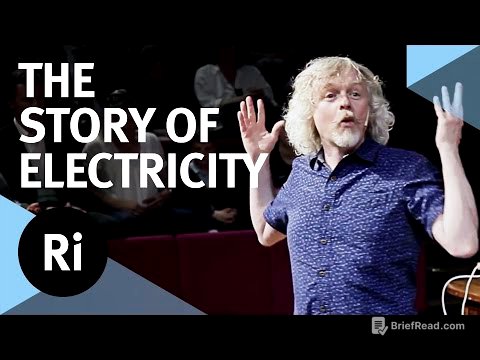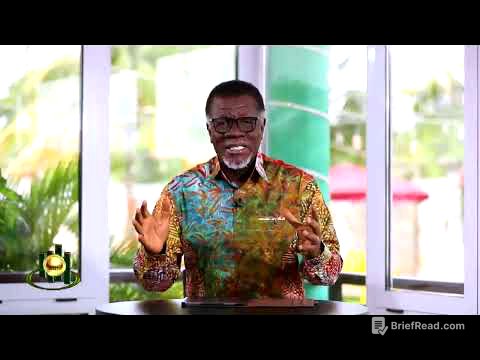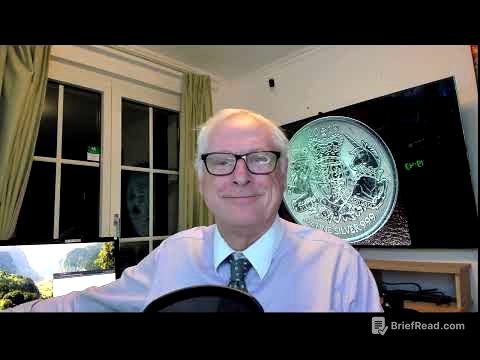TLDR;
This video explores the often unspoken challenges and "dark side" of having an INTP (Introverted, Intuitive, Thinking, Perceiving) personality type. It addresses the internal struggles INTPs face, such as chronic loneliness, emotional detachment, anxiety from not fitting in, overthinking, fear of commitment, existential nihilism, self-sabotage through isolation, impostor syndrome, and difficulties in emotional regulation. The video emphasizes self-acceptance, understanding these challenges, and finding ways to navigate them to live a more fulfilling life.
- INTPs often experience a relentless hunger for knowledge that can lead to social isolation and difficulty connecting with others.
- Emotional detachment is a defense mechanism for INTPs, but it can strain relationships.
- The anxiety of not fitting in is a common experience for INTPs, stemming from their unique way of seeing the world.
- Overthinking can lead to decision paralysis and mental exhaustion.
- INTPs often grapple with a fear of commitment due to the endless "what-ifs" and a desire to keep their options open.
- Existential nihilism, or the questioning of life's meaning, can lead to emptiness and emotional burnout.
- Self-sabotage through isolation is a common pattern, driven by fear of vulnerability and burdening others.
- Impostor syndrome is prevalent among high-performing INTPs, despite their intellect and accomplishments.
- Emotional regulation is a challenge for INTPs, but developing these skills is crucial for mental health and relationships.
The INTP's Inner World, a Double-Edged Sword [2:44]
The INTP mind is characterized by a relentless pursuit of knowledge and understanding, which can be both a strength and a weakness. While this drive fuels originality and insight, it can also lead to isolation as INTPs become engrossed in their thoughts and lose touch with the external world. Social connections become difficult to maintain, and conversations may feel shallow or exhausting. This sense of loneliness is supported by research indicating that introverted personalities with strong intuition and thinking traits are more prone to social isolation, with a significant percentage reporting chronic loneliness due to overthinking and social withdrawal. This overthinking creates a cycle of isolation and mental exhaustion, distancing INTPs from those who care about them.
Emotional Detachment and the Cost of Intellectualism [5:06]
INTPs often process emotions through analysis and reason, which can create a sense of detachment from their own feelings and those of others. This intellectualizing of emotions can make displays of warmth or closeness feel overwhelming, leading INTPs to retreat further into their minds as a defense mechanism. This emotional coldness, though not intentional, can strain relationships, leaving loved ones feeling shut out and misunderstood. Research indicates that individuals with strong thinking and introverted traits often struggle with expressing and receiving emotional support. Recognizing this challenge is the first step toward building emotional connections, requiring patience and a willingness to step into uncomfortable feelings to bridge the gap between themselves and others.
The Anxiety of Not Fitting In [7:26]
Many INTPs experience a persistent anxiety stemming from feeling like they don't quite fit in, not just due to introversion but because of their unique way of processing the world. This can manifest in the workplace as feeling out of sync with team dynamics that prioritize small talk and quick decisions, or in social circles where the energy feels overwhelming or superficial. In relationships, this dissonance can lead to tension, with partners interpreting the INTP's quietness as disinterest. Psychological research suggests that feeling like you don't belong can lead to anxiety, lowered self-esteem, and even physical health issues, a phenomenon known as social alienation. Recognizing this anxiety is the first step toward finding spaces where INTPs feel more at home, both in work and in personal relationships.
The Endless Loop of Overthinking [9:43]
INTPs often fall into a trap of overthinking, where they become so deeply engrossed in their thoughts that the outside world fades away. This constant mental activity, while helpful for identifying patterns, can erode mental health if left unchecked. Endless analysis can lead to decision paralysis, where the overwhelming number of options makes it difficult to choose, resulting in exhaustion and anxiety. Research links chronic overthinking to increased anxiety and depression. Recognizing when thinking is becoming harmful and allowing space for uncertainty are crucial skills to cultivate. Growth and peace come from trusting oneself and moving forward, even when the path isn't perfectly clear.
How to Embrace, Not Escape This Darkness [11:47]
Living with an INTP mind involves carrying a weight that is often invisible to others. The key is not to run from this darkness but to learn to manage it by setting boundaries with one's own mind and transforming introspection into a source of strength. Creating mental checkpoints to assess whether a thought is helpful or trapping can be beneficial. Honoring the need for solitude while also seeking genuine connections can break the cycle of isolation. Embracing all parts of oneself, even the painful ones, leads to understanding and growth. Acceptance means starting from a place of kindness toward oneself, recognizing that the mind's depth is a gift and that navigating the darkness can unlock peace and clarity.
Fear of Commitment and the Weight of What-ifs [14:01]
Many INTPs struggle with a fear of commitment, driven by the endless "what-ifs" that make choosing feel impossible. This fear stems from the anxiety of permanence and the idea that committing closes off other possibilities. This mental weighing can make settling on any choice feel like locking yourself in a cage. Research points to this struggle as part of decision fatigue, where too many options and overthinking lead to stress and anxiety. Committing doesn't mean losing freedom but choosing what matters most, even with uncertainty. Understanding this tension involves self-compassion, giving oneself permission to choose imperfectly, and recognizing that growth happens in the doing, not the perfect planning.
The Crisis of Existential Nihilism [16:08]
A profound challenge for many INTPs is the relentless questioning of life's meaning, which can lead to a sense of emptiness. This isn't just curiosity but a deep wrestling with the idea that nothing truly matters, leading to emotional exhaustion and numbness. Research links existential anxiety to higher rates of depression and emotional burnout. The path forward involves holding these questions with care and embracing uncertainty. Finding purpose through values, connections, and courage can help create meaning, even in the face of meaninglessness. This crisis can become a gateway to learning to sit with the unknown and finding meaning in small, human moments.
Self-Sabotage Through Isolation [18:15]
When emotions become overwhelming, many INTPs retreat into isolation, pushing away those who care most. This withdrawal can be a form of self-sabotage, driven by fear of vulnerability and burdening others. However, this isolation can erode self-worth and deepen feelings of loneliness. Research shows that chronic social isolation affects mental health as profoundly as other risk factors for depression and anxiety. Recognizing this pattern is crucial, and reaching out, even when difficult, is an act of courage. True connection involves showing up as you are, shadows and all, and sharing your inner world to invite healing.
Impostor Syndrome in High-Performing INTPs [20:21]
Despite their intellect and insight, many INTPs experience impostor syndrome, a persistent feeling of being a fraud. They often dismiss their achievements as luck rather than their own hard work or talent. Research correlates personality traits like introversion, high openness, and a strong inner critic with higher rates of impostor syndrome. This internal struggle affects careers, relationships, and self-worth, creating pressure to constantly prove oneself. Feeling like an impostor means caring deeply about your work and authenticity. Healing involves acknowledging impostor syndrome without judgment and recognizing achievements as genuine reflections of abilities.
Emotional Regulation: It's Not Your Fault, But Your Responsibility [22:35]
Emotions can feel like a foreign language to INTPs, often overwhelming and unpredictable. When emotions arise, it can be difficult to process them clearly, leading to confusion and frustration. This is due to the brain's tendency to prioritize analysis and reason. While difficulty in emotional regulation may not be your fault, it is your responsibility to address it. Emotions are signals that help navigate life, and ignoring them can disconnect you from yourself and others. Developing emotional regulation skills improves mental health, relationships, and overall life satisfaction. Learning to recognize, name, and sit with emotions builds resilience and a stronger sense of self. Emotional regulation is about waking up to your emotional truth and learning to hold it with care, responding with kindness and clarity.








